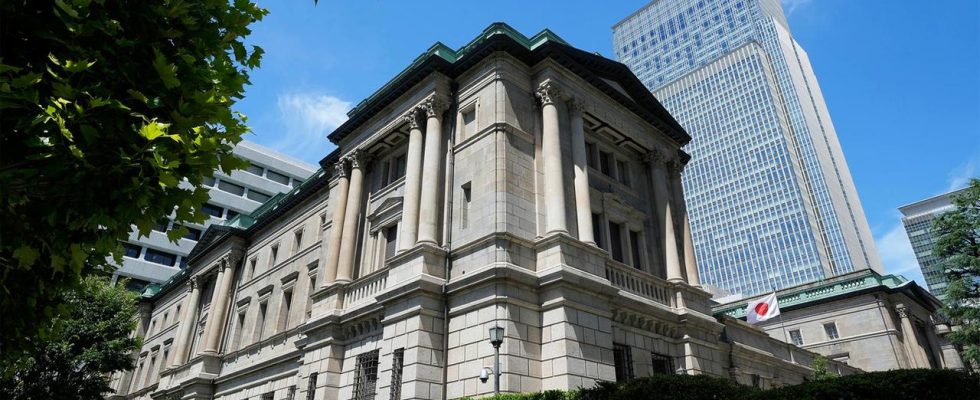The Japanese central bank has decided to end the negative interest rate policy. With the first increase in 17 years, it is the last major central bank to say goodbye to negative interest rates.
The Japanese central bank is raising its key interest rate for the first time in 17 years. The Bank of Japan decided to slightly increase its short-term interest rate spread after a two-day meeting. It set the overnight interest rate as the new key interest rate and decided to keep it in a range of 0 to 0.1 percent by, among other things, paying 0.1 percent interest on deposits with the central bank.
With the increase, the Bank of Japan is the last of the world’s major central banks to abandon the policy of negative interest rates. It first introduced this in 2016 in the fight against deflation. Now the central bank is making a historic shift from its decades-long focus on boosting growth through massive monetary stimulus.
Normalization of monetary policy
According to economists, the adopted change signals the beginning of a normalization of monetary policy: “The BoJ has started to return to normalization. But the central bank is moving quite cautiously, and it is a small step,” says Izuru Kato, chief economist at Totan Research.
Experts also emphasize the need to prevent renewed deflation: “The BoJ must prevent a renewed slide into deflation, which is why today’s step is the beginning of a gentle change in monetary policy and not an abrupt departure from ultra-expansionary monetary policy,” said the chief economist of VP Bank Thomas Gitzel.
Ultra-loose monetary policy
The BoJ’s previous policies contrasted with other central banks, which have sharply raised interest rates in the past two years to combat inflation triggered by the coronavirus pandemic, the Ukraine war and supply chain problems.
The Japanese central bank’s aggressively relaxed monetary policy contributed to a rapid fall in the value of the yen. The consequences hit households hard, so that the central bank came under increasing pressure to take measures.
Bianca von der Au, HR, tagesschau, March 19, 2024 9:17 a.m

